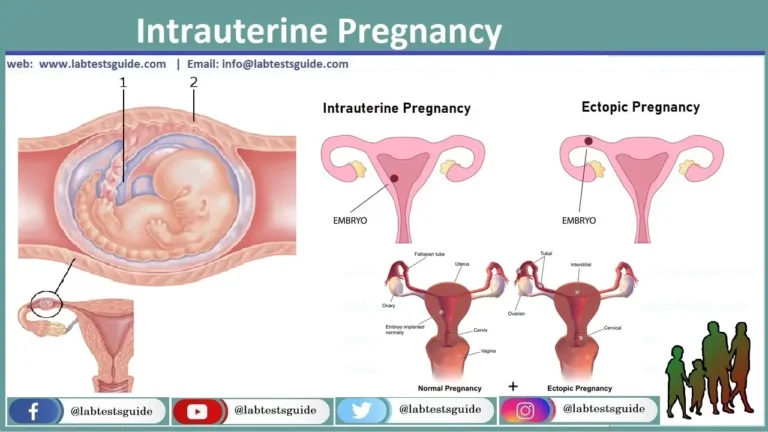Heartburn during pregnancy is a common and uncomfortable symptom experienced by many expectant mothers. It is also known as acid indigestion or acid reflux. Heartburn occurs when stomach acid flows back into the esophagus, causing a burning sensation in the chest and throat. Several factors contribute to heartburn during pregnancy, including hormonal changes and the physical pressure of the growing uterus on the stomach.

- Common Pregnancy Symptom: Heartburn, also known as acid indigestion or acid reflux, is a prevalent discomfort experienced by many pregnant women.
- Causes: Heartburn during pregnancy is primarily caused by hormonal changes and the physical pressure of the growing uterus on the stomach, which can lead to stomach acid flowing back into the esophagus.
- Symptoms: Heartburn typically presents as a burning sensation in the chest and throat, often accompanied by regurgitation of stomach acid.
- Management and Prevention:
- Eat smaller, more frequent meals.
- Avoid spicy, greasy, acidic, and triggering foods.
- Maintain good posture and avoid lying down immediately after eating.
- Elevate your upper body while sleeping.
- Wear loose-fitting clothing.
- Avoid smoking and alcohol.
- Chewing sugar-free gum can help increase saliva production.
- Consult your healthcare provider before taking any medication or antacids.
- Ginger and some over-the-counter antacids may provide relief.
- Consult Your Healthcare Provider: It’s crucial to discuss any persistent or severe heartburn symptoms with your healthcare provider to rule out underlying issues and receive personalized recommendations.
- Temporary Condition: Heartburn during pregnancy is usually temporary and often improves or resolves after childbirth.
- Medication: If lifestyle changes and over-the-counter remedies are ineffective, your doctor may prescribe safe medications for heartburn during pregnancy.
Introduction of Heartburn during Pregnancy:
Heartburn during pregnancy is a common and uncomfortable symptom experienced by many expectant mothers. This condition, also known as acid indigestion or acid reflux, is characterized by a burning sensation in the chest and throat. It occurs when stomach acid flows back into the esophagus.
Pregnancy brings about various changes in the body, including hormonal shifts and physical pressures from the growing uterus, which can contribute to heartburn. While it is typically a temporary issue that arises during pregnancy, it can cause significant discomfort. This article explores the causes, symptoms, management, and prevention of heartburn during pregnancy to help expectant mothers find relief and ensure a more comfortable pregnancy experience.
Causes and Triggers of Heartburn:
- Hormonal Changes: Pregnancy hormones, particularly progesterone, can relax the lower esophageal sphincter (LES), allowing stomach acid to flow back into the esophagus. This relaxation is a primary cause of heartburn during pregnancy.
- Pressure on the Stomach: As the uterus grows, it exerts increasing pressure on the stomach. This pressure can force stomach acid into the esophagus, leading to heartburn.
- Relaxation of the LES: The relaxation of the LES is further exacerbated by the physical changes in the body, making it easier for acid to escape into the esophagus.
- Dietary Factors: Certain foods can trigger heartburn during pregnancy, including spicy, greasy, and acidic items. Chocolate, caffeine, and citrus fruits are common culprits.
- Lifestyle Choices: Factors such as overeating, lying down immediately after meals, and wearing tight clothing can contribute to heartburn by increasing abdominal pressure and promoting acid reflux.
Symptoms and Diagnosis:
- Burning Sensation: The hallmark symptom of heartburn during pregnancy is a burning sensation in the chest and throat. It often feels like a fiery discomfort.
- Regurgitation: Some individuals may experience regurgitation, where stomach acid flows up into the throat or mouth.
- Difficulty Swallowing: Heartburn can lead to a feeling of difficulty or discomfort while swallowing, known as dysphagia.
- Coughing and Sore Throat: The irritation caused by stomach acid can trigger coughing and a sore throat.
- Diagnosis: Healthcare providers typically diagnose heartburn during pregnancy based on the reported symptoms and medical history. Additional tests are rarely necessary unless other underlying conditions are suspected. A physical examination may also be performed to rule out other issues.
Complications and Risks:
- Esophagitis: Untreated or severe heartburn can lead to esophagitis, which is inflammation and irritation of the esophagus. This condition can cause pain, difficulty swallowing, and bleeding in extreme cases.
- Respiratory Problems: Stomach acid that reaches the throat or lungs can lead to respiratory issues, including coughing, wheezing, or exacerbating asthma symptoms.
- Discomfort and Sleep Disturbance: Persistent heartburn can cause significant discomfort and interfere with sleep, potentially leading to fatigue and other related problems during pregnancy.
- Impact on Nutritional Intake: Severe heartburn may deter pregnant individuals from consuming adequate nutrients, potentially affecting the health of both the mother and the baby.
- Emotional Stress: Dealing with ongoing heartburn can be emotionally distressing and may contribute to increased stress during pregnancy.
Managing Heartburn During Pregnancy:
- Dietary Modifications: Avoid spicy, greasy, and acidic foods that can trigger heartburn. Opt for smaller, more frequent meals and focus on a balanced diet.
- Lifestyle Changes: Maintain good posture, avoid lying down immediately after eating, and wear loose-fitting clothing to minimize abdominal pressure.
- Elevating Upper Body: Raise the upper body while sleeping by using extra pillows or a pregnancy wedge pillow to prevent acid reflux.
- Fluid Intake: Stay hydrated but avoid drinking large quantities of fluids right before or after meals.
- Chew Gum: Chewing sugar-free gum after meals can help increase saliva production, which can neutralize stomach acid.
- Antacids (with Medical Guidance): Some over-the-counter antacids may be safe during pregnancy, but consult your healthcare provider before using any medication.
- Natural Remedies: Consider ginger in various forms, such as ginger tea or ginger candies, which some find helpful for heartburn. Always consult your healthcare provider for specific recommendations.
Seeking Medical Advice:
- Persistent Symptoms: If heartburn symptoms persist despite lifestyle changes and home remedies, it’s essential to consult a healthcare provider.
- Severe Discomfort: Severe or unbearable heartburn should prompt a visit to a healthcare professional.
- Worsening Symptoms: If symptoms worsen or if new symptoms develop, seek medical advice promptly.
- Pregnancy Complications: If heartburn is causing complications, such as weight loss, difficulty eating, or impacting your overall well-being, consult a healthcare provider.
- Medication Concerns: If you have concerns about medication safety or need prescription-strength treatments, discuss these with your healthcare provider.
Preventions:
Implementing these preventive measures can help reduce the frequency and severity of heartburn during pregnancy, contributing to a more comfortable experience.
- Dietary Choices: Avoid trigger foods like spicy, greasy, and acidic items. Opt for a balanced diet, smaller meals, and consider eating more slowly.
- Posture and Timing: Maintain good posture and avoid lying down immediately after eating. Aim to stay upright for at least 2-3 hours after meals.
- Clothing: Wear loose-fitting clothing to reduce pressure on the abdomen.
- Fluid Intake: Stay hydrated but avoid consuming large amounts of liquids right before or after meals.
- Elevate While Sleeping: Use extra pillows or a pregnancy wedge pillow to elevate your upper body while sleeping.
- Stress Management: Practice stress-reduction techniques like yoga, meditation, or deep breathing to minimize emotional triggers for heartburn.
- Chewing Gum: Chewing sugar-free gum after meals can stimulate saliva production, which may help neutralize stomach acid.
- Consultation: Seek guidance from a healthcare provider to create a personalized plan for managing and preventing heartburn during pregnancy, including the use of safe medications if necessary.
Coping Strategies and Support:
- Dietary Modifications: Follow a heartburn-friendly diet to minimize discomfort. Keep a food diary to identify specific triggers and adjust your eating habits accordingly.
- Regular Small Meals: Consume smaller, more frequent meals rather than large ones to reduce the likelihood of heartburn.
- Stay Upright: After eating, remain upright for at least 2-3 hours. Avoid lying down immediately to prevent acid reflux.
- Elevate While Sleeping: Use extra pillows or a pregnancy wedge pillow to elevate your upper body during sleep.
- Chew Gum: Chewing sugar-free gum after meals can stimulate saliva production, which helps neutralize stomach acid.
- Relaxation Techniques: Practice stress-reduction techniques like deep breathing, meditation, or prenatal yoga to manage emotional triggers for heartburn.
- Support System: Share your experiences with friends, family, or other pregnant individuals. Sometimes, simply talking about your challenges can provide emotional relief.
- Healthcare Provider: Maintain regular check-ups with your healthcare provider to monitor your heartburn and receive guidance on symptom management.
- Over-the-Counter Remedies: If approved by your healthcare provider, consider using over-the-counter antacids or other safe medications as directed.
- Join Support Groups: Seek out online or local support groups for pregnant individuals experiencing heartburn. Sharing tips and stories can be comforting.
FAQs:
1. What causes heartburn during pregnancy?
- Heartburn during pregnancy is primarily caused by hormonal changes (progesterone), physical pressure from the growing uterus, and the relaxation of the lower esophageal sphincter (LES).
2. Is heartburn during pregnancy harmful to the baby?
- Heartburn itself is typically not harmful to the baby. However, severe and untreated heartburn can lead to complications and discomfort for the mother, potentially affecting the pregnancy.
3. Can I take antacids during pregnancy for heartburn?
- Some over-the-counter antacids may be safe during pregnancy, but it’s crucial to consult your healthcare provider before using any medication, including antacids.
4. How can I prevent heartburn during pregnancy?
- Preventive measures include dietary modifications (avoiding trigger foods), maintaining good posture, eating smaller, more frequent meals, staying upright after eating, and using elevation while sleeping.
5. When should I seek medical advice for heartburn during pregnancy?
- Consult a healthcare provider if you experience persistent, severe, or worsening heartburn, or if you have concerns about your symptoms. Medical guidance is essential, especially if lifestyle changes aren’t providing relief.
6. Can heartburn during pregnancy harm my esophagus or lead to other complications?
- Untreated or severe heartburn can lead to complications such as esophagitis (inflammation of the esophagus) and respiratory issues. Seeking medical advice and following treatment recommendations can help prevent these complications.
7. Is it safe to use natural remedies like ginger for heartburn during pregnancy?
- Ginger is generally considered safe for most pregnant individuals and may provide relief for heartburn. However, it’s wise to consult your healthcare provider for personalized advice.
8. Does heartburn during pregnancy mean my baby will have a lot of hair?
- The folklore that heartburn during pregnancy is related to the amount of hair your baby will have is not scientifically proven. Heartburn is a common pregnancy symptom and is not a reliable predictor of your baby’s hair growth.
9. Is heartburn during pregnancy a sign of a specific gender for the baby?
- There is no scientific evidence to suggest that the presence or absence of heartburn during pregnancy is related to the gender of the baby. It’s primarily linked to hormonal and physical changes.
10. Will heartburn go away after pregnancy?
- In most cases, heartburn during pregnancy is temporary and tends to improve or resolve after childbirth. However, it may persist in some individuals. If it continues, consult your healthcare provider for ongoing management.
Conclusion:
In conclusion, heartburn during pregnancy is a common and often uncomfortable symptom experienced by expectant mothers. It is primarily caused by hormonal changes, physical pressure on the stomach from the growing uterus, and relaxation of the lower esophageal sphincter. While generally not harmful to the baby, severe or untreated heartburn can lead to complications and discomfort for the mother.
Managing and preventing heartburn during pregnancy involves making dietary and lifestyle adjustments, such as avoiding trigger foods, maintaining good posture, and staying upright after meals. Elevating the upper body while sleeping and practicing stress-reduction techniques can also help. Natural remedies like ginger and over-the-counter antacids may offer relief, but it’s crucial to consult a healthcare provider for personalized guidance.
Seeking medical advice is essential for persistent or severe heartburn, as it can help prevent complications and ensure a more comfortable pregnancy experience. Remember that heartburn during pregnancy is usually temporary and tends to improve after childbirth.
Possible References Used






